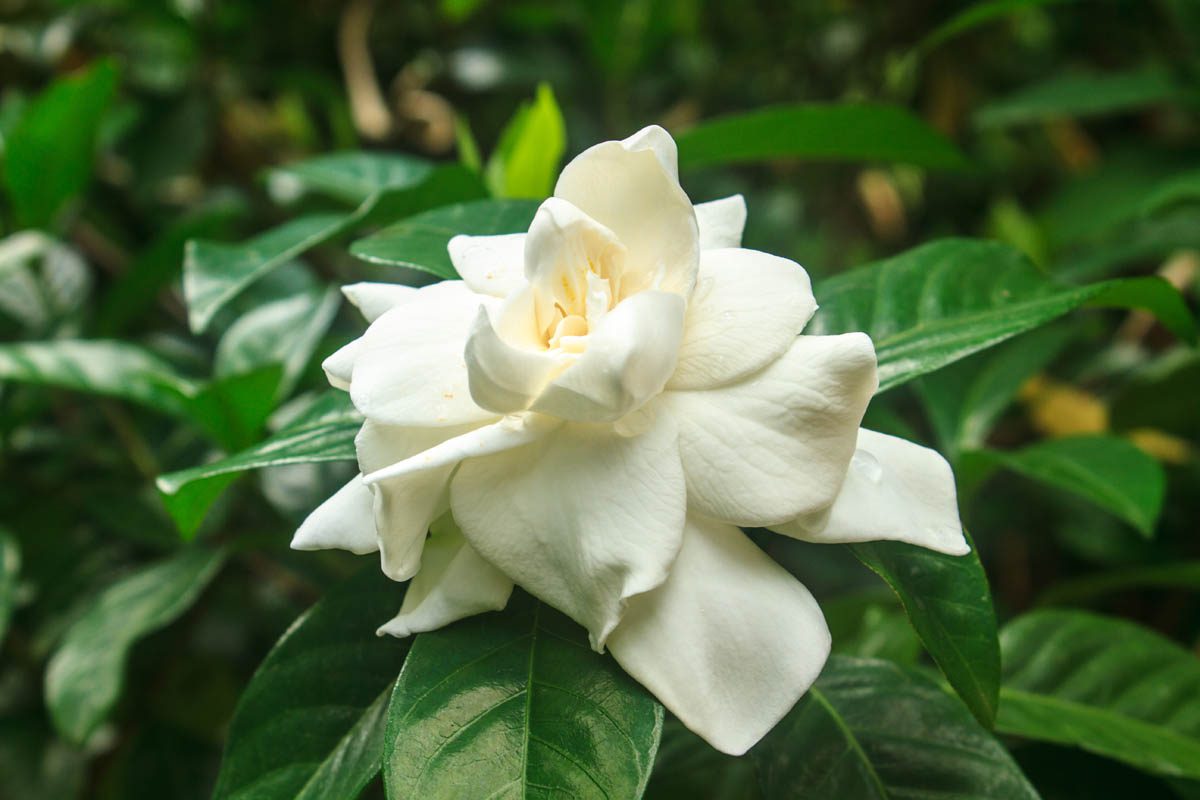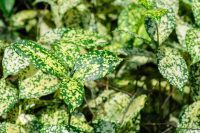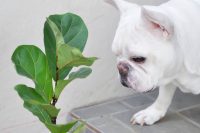Gardenia is toxic to dogs. The toxic principles are crocetin, geniposide, genipin, geniposide and saponins which cause mild gastrointestinal upset, and in some cases, cardiac and nervous system disorders.
What is gardenia?
| Family | Rubiaceae |
| Botanical name | Gardenia spp. |
| Common names | Gardenia |
| Toxicity | Toxic to dogs |
| Toxic parts | All parts |
| Toxic principle | Crocetin, geniposide, genipin, geniposide and saponins |
| Severity | Mild to moderate |
Gardenias are a tropical evergreen shrub with dark, glossy green leaves and highly scented creamy white flowers which bloom from mid-spring until mid-summer. Native to Africa, Asia, and Pacific islands, there are over 200 species of gardenia, ranging in size and shape from 100 cm to over 2 metres in height. The most common species of gardenia is Gardenia jasminoides which grows to a mature height of 1 to 1.5 metres.
The preferred climate of gardenia is subtropical, however, plant lovers may choose to grow gardenias indoors or in a greenhouse in cooler climates.
Clinical signs
Signs of gardenia ingestion include vomiting and diarrhea, low blood pressure, irregular heartbeat and depression. Some dogs may also experience hives although that is less common than human exposure due to the fur which protects the skin.
First aid
If it is safe, remove any remaining plant matter from the dog’s mouth and offer a drink of something tasty such as milk or yoghurt.
Treatment
If you suspect your dog has ingested any part of a gardenia plant, contact your veterinarian or pet poison helpline for further advice. The veterinarian may recommend a wait-and-see approach, to see if clinical signs develop, or may want to see the dog immediately, especially if the dog has underlying health conditions. There is no antidote to gardenia toxicity, and treatment is aimed at preventing further absorption as well as managing clinical signs.
If ingestion was recent, the veterinarian will induce vomiting to remove any remaining plant matter followed by the administration of activated charcoal. Intravenous fluids will be administered to dogs with vomiting or diarrhea to prevent or treat dehydration and electrolytes. Antiemetics can be prescribed to control vomiting and gastric protectants which will help to protect the mucosal lining of the stomach.
How to prevent gardenia poisoning in dogs
While most cases of gardenia ingestion are mild and self-limiting, pet owners may prefer to avoid gardenia altogether. The following plants are non-toxic to dogs and are safe to grow in homes with pets.
- Jasmine
- Orange jasmine
- Rose
- Zinnia
- Aster
- Snapdragon
- Hibiscus
- Cosmos
- Cornflower
- Forget-me-not
- Cock’s comb
- Sunflower
Julia is a writer and landscape consultant from Wollongong with a love of horticulture. She had been an avid gardener for over 30 years, collects rare variegated plants and is a home orchardist. Julia is passionate about learning and sharing her knowledge of plant propagation and plant toxicology. Whether it’s giving advice on landscape projects or sharing tips on growing, Julia enjoys helping people make their gardens flourish.




